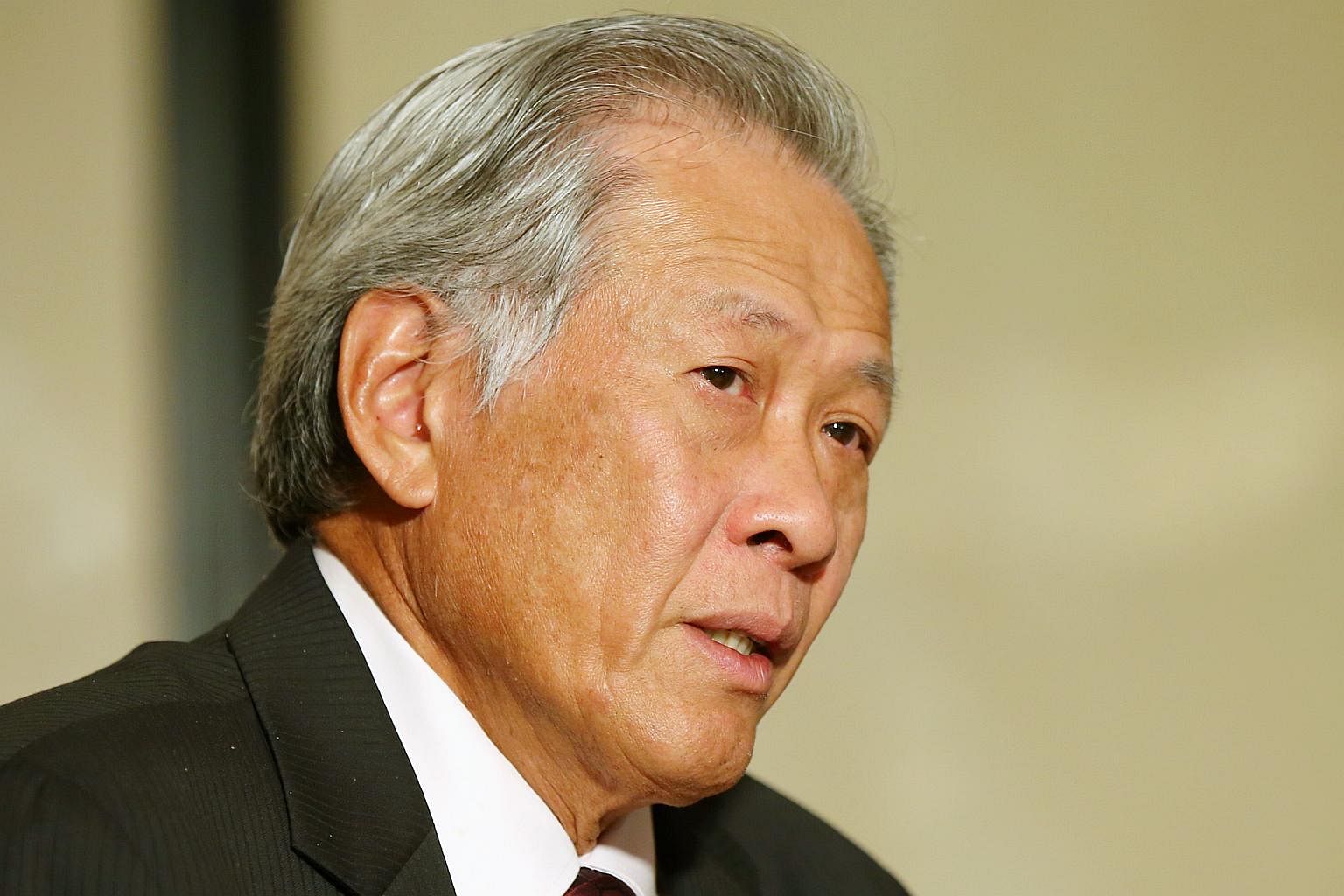Asean will not be put in position to pick between world powers: Ng Eng Hen
Sign up now: Get ST's newsletters delivered to your inbox

Singapore Defence Minister Ng Eng Hen said Asean will continue to work for multilateral frameworks, and not be one to be put in a position to choose between great powers, on June 3, 2018.
ST PHOTO: GAVIN FOO
SINGAPORE - Asean will continue to maintain its centrality, and will not be put in a position to pick among the world powers, said Defence Minister Ng Eng Hen at the end of the Shangri-La Dialogue, during which the Indo-Pacific emerged as a buzzword.
The term - which has gained a new lease of life under the Trump administration, and places India front and centre compared to the "Asia-Pacific vision" - has drawn flak from Chinese scholars, who accuse it as a US strategy to constrain China's rise.
"I don't think a re-labelling of regions can affect the security positions of countries. It's not so simple," Dr Ng told reporters in a wrap-up interview on Sunday. "As I said, Asia will remain Asia, the South China Sea will be South China Sea, the Straits of Malacca will continue to be there, and daily activity will continue."
Asean will remain as is, but will have to adjust, he added, noting how countries at the Shangri-La Dialogue this week vowed to "send more ships and planes to this region".
"Asean will continue to work for multilateral frameworks. Asean will continue not to be one to be put in a position to choose between great powers, whether US, China or India," he said. "Asean will want to continue to maintain its centrality. Asean will still want consensus to be able to work with individual countries whether for trade or security."
While the conference saw defence chiefs tussle over the past few days with hefty topics including the South China Sea dispute and the humanitarian crisis in Myanmar's Rakhine state, an air of hope was in the air as it came to a close with an unprecedented meeting between the US and North Korea on the horizon.
"A historic moment is coming on," said Dr Ng, adding that he felt that this year's conference had been particularly impactful.
In his wide-ranging interview, he said that China - with its military might and economic heft - is critical to improving the security of the Asia-Pacific region.
"All important is the relationship between China and the US. They need to find common understanding," said Dr Ng.
Pointing out that differences between the two had been laid out in the open during the conference, he added: "I don't think there's anything else that needs to be said about what the disagreements are. Everyone is clear about (them). Then the question is, having aired all these disagreements, how do we proceed forward, whether its a Code of Conduct (COC), whether it's in trade, whether it's in joint action."
Asked about talks between Asean and China on the COC, Dr Ng said there has been progress, adding, "this is very much in the hands of diplomats". Concerns of both claimant states and user states should also be address, he added.
Dr Ng also touched on patrols in the Sulu Sea, noting that Singapore has from the outset encouraged Malaysia, the Philippines and Indonesia to start this.
"Because we saw that as a need. And we started from the premise that what affects Asean - when it comes to terrorists and transboundary threat - will affect us. We'll have to help them, otherwise our own safety is at risk," he said, adding that Singapore would be happy to participate if needed, and has offered its Information Fusion Centre for information-sharing.
Dr Ng also fondly recounted his first official meeting this week with Malaysia's newly-minted defence minister Mohamad Sabu, noting with a chuckle that their discussion had also involved talk about Singapore's best fish briyani.
"That reflects the warmth among Singaporeans and Malaysians in general," he said.
Dr Ng said he was assured that Malaysia understood how crucial the Five Power Defence Arrangements are for the security of Malaysia and Singapore. And Malaysia, now steered by a new government, wants to maintain if not improve defence ties.
He has invited Mr Mohamad to visit Singapore Armed Forces units here, and has also been invited to Malaysia.
"So it was a very good start, very warm start, and I think we'll get along," said Dr Ng.
New premier Mahathir Mohamad had said last week that Malaysia plans to further develop Middle Rocks, which the International Court of Justice has ruled as belonging to Malaysia.
Dr Ng told reporters: "It's completely legitimate. As long as it complies with internationall law, both sides or all countries have a right to what they develop, to take what is necessary for their own needs."
"And I think it's legitimate. And for them, they feel they need to develop it. I think it's good they have said so publicly, so we all understand each others' positions. Just as Singapore will want to develop various aspects as we've done, in terms of our islands, for domestic or civilian or security."


